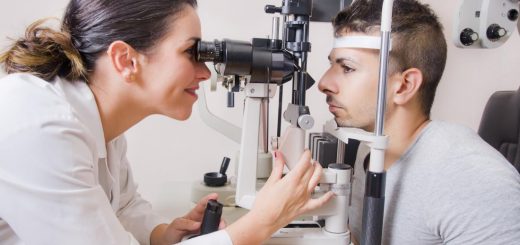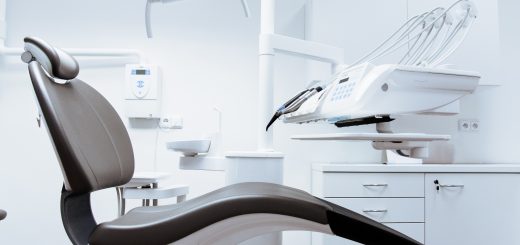What is Testosterone
Highlights:
- What is testosterone?
- Testosterone determination
- Testosterone supplement
A sexual hormone or steroid par excellence, testosterone is more precisely the main androgenic hormone, i.e. a male hormone.
It is produced in men and women in different quantities, quantities that can be observed to reveal different dysfunctions.
What is testosterone?

Testosterone is an androgenic steroid hormone. It is synthesized from cholesterol.
In men, it is produced and secreted mainly (95%) in the testicles, but also in the adrenal glands.
In women, it is produced in smaller quantities, in the ovaries and adrenal glands.
The synthesis of testosterone is controlled by a neuro-hormone: GNRH (pituitary gonadotropin releasing hormone). The testosterone production cycle begins at the hypothalamus, which secretes two hormones that stimulate testosterone production:
- luteinizing hormone (LH);
- and follicle stimulating hormone (FSH).
Note: testosterone production is controlled by a negative feedback loop: if testosterone levels are too high, GNRH secretion is inhibited, resulting in decreased LH, FSH and therefore testosterone production.
Main role of testosterone

Testosterone has an important role at different times in life.
Indeed, during embryogenesis, it allows sexual differentiation. Then, at puberty, testosterone is again produced in greater quantities to allow sperm to mature and secondary sexual characteristics (voice, hair, size of the genitalia) to appear.
Thus, in humans, testosterone is involved in:
- sexual function (libido);
- the maintenance of good general health;
- spermatogenesis;
- the increase in muscle mass;
- the mood;
- the skin;
- the hair;
- protection against osteoporosis;
- the production of blood cells;
- decision-making, aggressiveness, etc.
In women, produced in small quantities, testosterone plays a role in maintaining sexual desire, muscle building and growth, blood cell production and protection against osteoporosis. It is also a precursor of estrogen.
Anabolic role of testosterone

In addition to its androgenic role (masculinization, deeper voice, hairs, etc.), testosterone has an anabolic role as explained below:
- it allows the formation of tissues, muscle and bone growth;
- in addition, it allows for increased red blood cell formation and easier regeneration in the event of injury or illness;
- it is also a hormone that makes it easier to lose fat by increasing basal metabolic rate.
Testosterone can be found in free form (2 to 3%) or bound to a protein. These different forms affect the action of testosterone differently.
Testosterone determination
We can do a blood test for testosterone:

- in men, in order to understand a dysfunction of the sexual glands;
- in women, as part of a diagnostic procedure related to hirsutism (excess hair in areas that are not usually hairy).
Good to know: dosing is most often done in the morning, on an empty stomach.
Normal testosterone values

They are a function of age and gender.
| Age | Men | Women |
| Prepubescent age | 0,3 à 3,5 nmol/L | 0,03 à 0,35 nmol/L |
| Adult | 10,4 à 34,7 nmol/L | 0,7 à 2,8 nmol/L |
Pathological variations of testosterone
If testosterone levels vary physiologically with age, it can also be a good reflection of an individual’s state of health and can highlight different pathologies.
An increased rate can have several explanations:

In men, it can be explained by external administration of testosterone or gonadotropins, hyperthyroidism, feminizing testicular syndrome.
In women, it may mean hyperandrogenism, polycystic ovarian syndrome, ovarian or adrenal tumor.
A reduced rate can reveal several situations. In humans, it may be:
- a testicular insufficiency;
- of a Cushing’s syndrome;
- administration of synthetic androgens or estrogens or antiandrogens, a treatment for prostate cancer.
Good to know: According to a U.S. study, exposure to antiandrogenic treatment (AAT) for prostate cancer is associated with an increased risk of Alzheimer’s disease (+14%) and dementia (+20%) within the next 10 years.
Testosterone supplement

Factors that may reduce testosterone levels
The testosterone level can be lowered by:
- wrong eating habits;
- excessive alcohol consumption;
- stress;
- depressive conditions;
- different pathologies ;
- certain drug treatments.
Symptoms of testosterone deficiency

In view of the important role that testosterone plays in humans, a lack of testosterone can cause embarrassing clinical symptoms:
- fatigue;
- loss of energy;
- deterioration of sleep;
- cognitive problems;
- libido disorders;
- weight gain;
- decrease in muscle mass.
Once this deficiency has been confirmed through a blood test, prostate examination, breast gland check or sleep apnea syndrome, your doctor may offer you a testosterone supplement.
Note: Testosterone supplementation in overweight men can increase estrogen.
Good to know: if testosterone decreases classically with age, the levels are very different from one individual to another, whether in “full bloom of age” or later. Also, the effects of a possible deficiency can also be felt differently by different people.
To learn more about the subject, you can further read these interesting posts:
Why Men Need Testosterone Support Complex
Testosterone Growth Hormones for Bodybuilding – Should you buy them?
Remember to drop down your comments in the section below or feel free to request us to write on a topic which is of particular interest to you.



